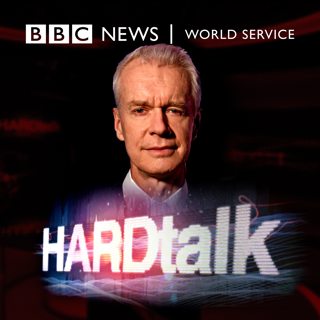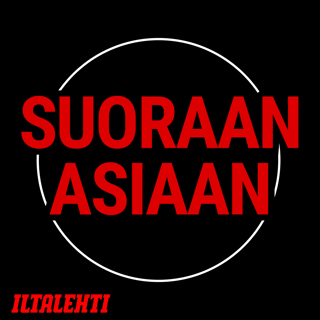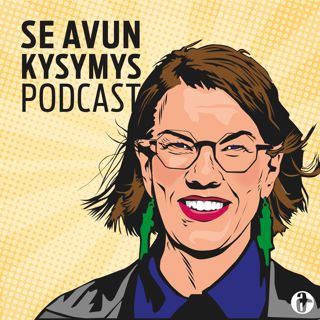
Chief Justice of South Africa - Mogoeng Mogoeng
Since the end of apartheid almost 20 years ago South Africa's constitution has become one of the most admired in the world - progressive, transformative, guaranteeing equality and human rights. But despite the great strides the country has made the reality is failing to live up to the promise. The legal system which guarantees the constitution has itself come under fire -- from within the government, from the opposition, and from some human rights groups. The buck stops with South Africa's Chief Justice Mogoeng Mogoeng.(Image: South African President Jacob Zuma (left) poses with new Chief Justice Mogoeng Mogoeng. Credit: AFP/Getty Images)
27 Kesä 201323min

Sergei Guriev – Russian Economist
Sergei Guriev is one of modern Russia's best and brightest economists. Well connected to the new Russian political elite, Guriev was a strong voice for economic liberalisation and is a Russian patriot. So why, earlier this year, did he choose - as so many talented Russians have in the past - to go into exile? And what does Guriev's extraordinary story tell us about the true face of Vladimir Putin's Russia?(Image: Sergei Guriev (left) attends a meeting with premier Dmitry Medvedev (right) in Moscow. Credit: Associated Press)
26 Kesä 201323min

Michael Sandel – Political Philosopher
Tim Franks speaks to Michael Sandel, a philosopher with the global profile of a rock star. His argument that markets are increasingly entering all parts of life and are becoming more and more destructive, has won him a worldwide following. But are commercial interests and financial incentives really that much more intrusive these days? If so, how do you draw up the rules for the moral limits of markets?
25 Kesä 201323min

Mehmet Simsek - Finance Minister, Turkey
Following the response to the anti-government demonstrations, critics at home and abroad are pointing to an increasingly authoritarian style of political leadership in Turkey. Why have protests erupted across the country like never before under the ruling AK party? And did the initial crackdown by the security forces actually strengthen the protesters? Zeinab Badawi is in Ankara to speak to Turkey’s finance minister, Mehmet Simsek.(Image: Mehmet Simsek, Credit: Dominique Faget/AFP/Getty Images)
24 Kesä 201323min

Ayad Allawi – Former Prime Minister of Iraq
More than a thousand people were killed in violence in Iraq last month according to the United Nations. The country appears to be dividing along religious lines, not helped by its neighbour Syria's descent into civil war. Sarah Montague talks to Ayad Allawi, the country's first Prime Minister after Saddam Hussein. He has accused the current Prime Minister, Nouri Al Maliki, of turning into a dictator. So what hope is there now for keeping the peace in Iraq?(Image: Ayad Allawi, former prime minister of Iraq. Credit: AFP/Getty Images)
19 Kesä 201323min

Martin Amis – Author
Stephen Sackur speaks to Martin Amis, an author who was pigeon-holed early in his career as the ‘enfant terrible’ of the British literary world. Four decades on, he remains one of the most successful and closely scrutinised novelists of his generation. His books are filled with greed, lust, addiction and ignorance, and yet, he suggests he writes in a celebratory spirit. So, what exactly is he celebrating?
16 Kesä 201323min

Ivo Daalder, US Permanent Representative to NATO
He’s European by birth; an American citizen by choice. But are those two outlooks becoming increasingly hard to reconcile? There’s tension over US surveillance that could affect Europeans; and a division in NATO between what one US defence secretary calls those who pay – principally the Americans – and those who enjoy the benefits – the Europeans. As Ivo Daalder ends his term, does he think it’s time for this 64-year-old veteran security organisation to be pensioned off? Presented by Shaun Ley.(Image: Ivo Daalder, Credit: AFP/Getty Images)
14 Kesä 201323min

Mo Ibrahim – Chairman of the Mo Ibrahim Foundation
Shaun Ley speaks to Mo Ibrahim, creator of the Ibrahim Prize for Achievement in African Leadership. His Index of African Governance suggests generally things are getting better. But some worry that China's willingness to lend money "no strings attached" is encouraging politicians to revert to their bad old ways. Is Mo Ibrahim's ambition of better governance being undermined from outside?
12 Kesä 201323min





















